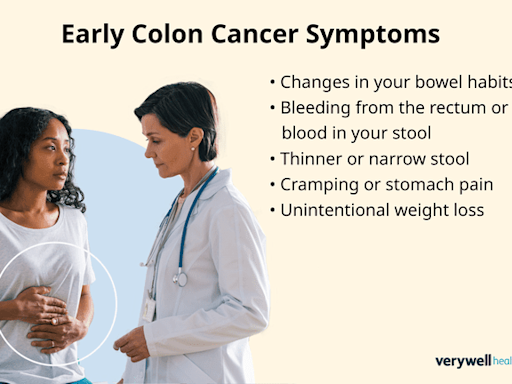Search results
Learn about the methods used to screen for colorectal cancer. This fact sheet also discusses the advantages and disadvantages of several colorectal cancer screening tests.
A colonoscopy is one of several screening tests for colorectal cancer. Talk to your doctor about which test is right for you. The U.S. Preventive Services Task Force (Task Force) recommends that adults age 45 to 75 be screened for colorectal cancer. The decision to be screened between ages 76 and 85 should be made on an individual basis.
Dec 6, 2022 · Choosing a colon cancer screening test may not be an easy decision, but it's a potentially lifesaving one. Consult your doctor about your colon cancer screening options. Commit to a screening schedule based on your personal risk factors. Remember, the earlier colon cancer is detected, the easier it is to treat.
Colorectal cancer screening tests can be divided into 2 main groups: Stool-based tests: These tests check the stool (feces) for signs of cancer. These tests are less invasive and easier to have done, but they need to be done more often. Visual (structural) exams: These tests look at the structure of the colon and rectum for any abnormal areas.
Feb 5, 2021 · Colorectal cancer screening – testing to look for cancer before symptoms start – can help save lives. Regular screening can find colorectal cancer early when it’s small and might be easier to treat. There are several different screening options for colorectal cancer. No matter which one you choose, the important thing is to be tested.
Mar 28, 2024 · Colorectal Cancer Screening (PDQ®) - NCI. Home. Cancer Types. Colorectal Cancer. Health Professional. Colorectal Cancer Screening (PDQ®)–Health Professional Version. Go to Patient Version. On This Page. Summary of Evidence. Significance. Evidence of Benefit. Evidence of Harms. Latest Updates to This Summary (03/28/2024) About This PDQ Summary.
Jul 27, 2023 · For this reason, doctors recommend regular screening tests to look for polyps in the colon. Finding and removing polyps helps prevent colon cancer. If colon cancer develops, many treatments can help control it. Treatments include surgery, radiation therapy and medicines, such as chemotherapy, targeted therapy and immunotherapy.



